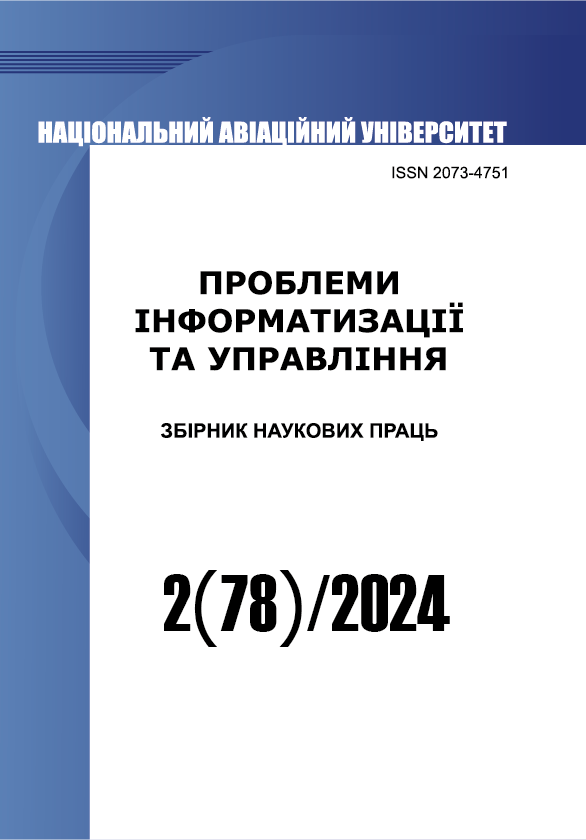Construction of the software of the information system for the formation of specialized thematic virtual communities
DOI:
https://doi.org/10.18372/2073-4751.78.18962Keywords:
specialization, topic, virtual community, degree of conformity, typology, process, information system, softwareAbstract
The article is devoted to the study of the software operation processes of specialized thematic virtual communities based on informational messages and user behavior in the social network. Attention is also paid to the research of virtual communities, which led to the emergence of specialized thematic virtual communities.
The results of the information system for the formation of specialized thematic virtual communities are presented, which will improve the process of dissemination of information content by users. Attention is focused on the following processes: creation of a specialized thematic virtual community based on the selection of users, analysis of the activity of an existing specialized virtual community and its search for the purpose of publishing the specified information content.
A formal modeling for the subject area is presented, on the basis of which the methodology formulation of the degree of correspondence of the information content of the specialization and the topic according to the defined keywords and tags, which were used to implement the system's tasks, took place.
The research results can be used to optimize the work of specialized thematic virtual communities.
References
Diah P., Emmanuel M. Sponsored Online Community Types and Participant’s Perceived Value. Asia Pacific Journal of Information Systems. 2021. Vol. 31, no. 3. P. 415–432. DOI: 10.14329/apjis.2021.31.3.415.
Introducing The Community Experience Pyramid | Open Social | Community Engagement Platform. 23 Aug. 2021. URL: https://www.getopensocial.com/blog/community-management/community-experience-pyramid/.
Maret P., Akerkar R., Vercouter L. Virtual Communities, a Typology. Web Intelligence. 2017. Vol. 15, no. 3. P. 185–187.
Mittilä T., Mäntymäki M. Classification of online communities. Frontiers of E-business Research 2002: FeBR 2002 ; Conference Proceedings / ed. by M. Seppä. Tampere, 2003. P. 315–333
Siuda D. Typology of Virtual Brand Communities’ Members. Procedia Computer Science. 2021. Vol. 192. P. 2190–98. DOI: 10.1016/j.procs.2021.08.232.
Omarova N. O. Study of Self-Organization Issues in Virtual Network Communities. Computational and Strategic Business Modelling / ed. by D. P. Sakas, D. K. Nasiopoulos, Y. Taratuhina. Cham, 2024. P. 593–609. DOI: 10.1007/978-3-031-41371-1_50.
Thornton J. A., Harrison M. J. Letter: Duration of Action of AH8165. British Journal of Anaesthesia. 1975. Vol. 47, no. 9. P. 1033-1033. DOI: 10.1093/bja/47.9.1033.
Zelinska N. et al. Książka w mediach media w book. Rynek – technologie – konsumpcja: collective monograph. Lublin : Wydawnictwo Uniwersytetu Marii Curie-Skłodowskiej, 2023. 278 c.
Агостіні, С., Мечант, П. Віртуальні спільноти та офлайн-співпраця: чотири тематичні дослідження. Спілкування. 2018. № 39. С. 15–32. DOI: 10.18566/comunica.n39.a02.
Березко О. Л. Персоніфікаційна класифікація Веб-сайтів. Eastern-European Journal of Enterprise Technologies. 2009. Vol. 4, no. 2(40). P. 27–32. DOI: 10.15587/1729-4061.2009.20824.
Паздерська Р. Програмне забезпечення діяльності спеціалізованих тематичних віртуальних спільнот. Інформація, комунікація, суспільство 2024 : матеріали 13-ої Міжнародної наукової конференції ICS-2024, Зозулі, Україна, 23–25 травня 2024 / Національний університет «Львівська політехніка». Львів, 2024. С. 233–234.
Downloads
Published
How to Cite
Issue
Section
License
Автори, які публікуються у цьому журналі, погоджуються з наступними умовами:- Автори залишають за собою право на авторство своєї роботи та передають журналу право першої публікації цієї роботи на умовах ліцензії Creative Commons Attribution License, котра дозволяє іншим особам вільно розповсюджувати опубліковану роботу з обов'язковим посиланням на авторів оригінальної роботи та першу публікацію роботи у цьому журналі.
- Автори мають право укладати самостійні додаткові угоди щодо неексклюзивного розповсюдження роботи у тому вигляді, в якому вона була опублікована цим журналом (наприклад, розміщувати роботу в електронному сховищі установи або публікувати у складі монографії), за умови збереження посилання на першу публікацію роботи у цьому журналі.
- Політика журналу дозволяє і заохочує розміщення авторами в мережі Інтернет (наприклад, у сховищах установ або на особистих веб-сайтах) рукопису роботи, як до подання цього рукопису до редакції, так і під час його редакційного опрацювання, оскільки це сприяє виникненню продуктивної наукової дискусії та позитивно позначається на оперативності та динаміці цитування опублікованої роботи (див. The Effect of Open Access).

